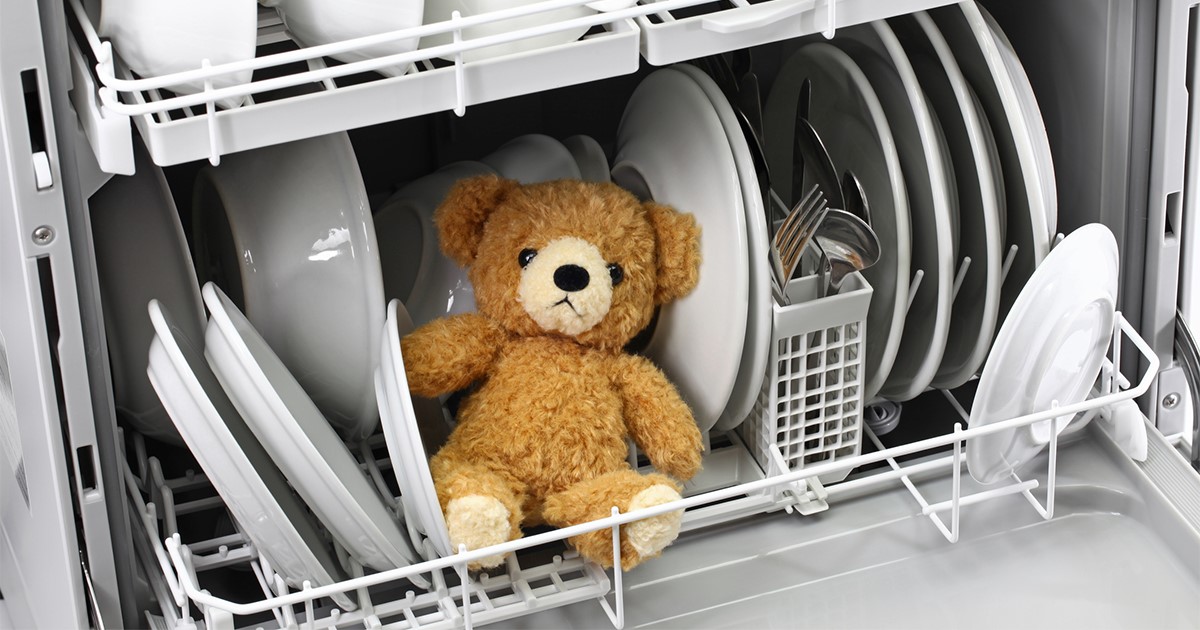

Articles
What Not To Put In A Dishwasher
Modified: January 18, 2024
Discover what items should never be put in a dishwasher. Read our informative articles on how to properly care for your dishes and avoid damage.
(Many of the links in this article redirect to a specific reviewed product. Your purchase of these products through affiliate links helps to generate commission for Storables.com, at no extra cost. Learn more)
Introduction
Having a dishwasher in the kitchen can be a real time-saver, making cleanup after a meal effortless. It’s no wonder that dishwashers have become a staple appliance in modern homes. However, it’s important to remember that not everything is suitable for the dishwasher. While it may be tempting to toss everything in and let the machine do the work, certain items can be damaged or cause damage to your dishwasher.
Understanding what not to put in a dishwasher is essential to maintain its performance and longevity. In this article, we’ll explore the items that should be kept out of the dishwasher to ensure its proper functioning and to protect your items from potential damage.
Key Takeaways:
- Preserve the longevity of your dishwasher and kitchen items by handwashing delicate materials such as wooden utensils, crystal glassware, and hand-painted dishes. Avoid potential damage and maintain their beauty and functionality.
- Protect your dishwasher and kitchen items by avoiding the dishwasher for certain items like sharp knives, aluminum and copper cookware, and disposable containers. Handwashing ensures proper care and longevity for these delicate items.
Read more: Where To Put Detergent In Dishwasher
Overview of Dishwashers
Dishwashers are an essential appliance in many households, designed to clean and sanitize dishes, glassware, and utensils. They consist of compartments for placing items to be washed, including racks for plates, cups, and silverware. The machine uses a combination of water, detergent, and heat to remove stubborn food particles, grease, and bacteria from the items placed inside.
Modern dishwashers offer various features and settings to cater to different needs and preferences. These include adjustable racks, different washing cycles such as heavy-duty, normal, and delicate, and options for temperature and drying mechanisms.
While dishwashers are convenient and efficient, it is important to note that not all items are suitable for cleaning in this appliance. Some materials and items are prone to damage or may even cause damage to the dishwasher itself. Understanding these limitations can help prevent potential issues and ensure the longevity of your dishwasher.
Potential Damage to Dishwashers
Putting the wrong items in the dishwasher can lead to various types of damage. Here are some of the potential risks:
- Damage to the dishwasher interior: Certain materials can scratch or damage the interior of the dishwasher, including the racks and spray arms. This can compromise the performance of the machine and may require costly repairs.
- Clogging of the drainage system: Some items, like food scraps, large bones, or pieces of paper, can clog the drainage system of the dishwasher. This can lead to standing water, unpleasant odors, and poor cleaning results.
- Malfunctioning of dishwasher components: Items that are not dishwasher-safe may cause damage to the heating element, filters, or other essential components of the dishwasher. This can result in poor cleaning performance or even complete malfunction of the machine.
It is crucial to avoid putting items in the dishwasher that may cause any of these issues. Let’s explore the specific items that should be kept out of the dishwasher to prevent such damage.
Items That Should Not be Put in a Dishwasher
While dishwashers are great for cleaning most kitchen items, there are certain items that should not be placed inside. It’s important to be aware of these items to avoid potential damage or problems. Here are 10 items that should be kept out of the dishwasher:
- Wooden Utensils and Cutting Boards: Wooden items can warp, crack, or lose their protective finish when exposed to the high temperatures and moisture inside a dishwasher. It’s best to wash them by hand and allow them to air dry.
- Cast Iron Cookware: The dishwasher’s intense heat and water can strip away the seasoning on cast iron, leading to rusting. Instead, clean cast iron pans with mild soap and water, and remember to dry them thoroughly.
- Nonstick Cookware: The nonstick coating on pans and baking sheets can deteriorate when exposed to the harsh cleaning cycle of a dishwasher. It’s best to wash them gently with warm, soapy water to preserve the nonstick properties.
- Crystal and Delicate Glassware: Fine crystal and delicate glassware are prone to cracking or chipping in the dishwasher. It’s recommended to wash them by hand to maintain their beauty and integrity.
- Silverware with Wooden, Bone, or Plastic Handles: The high heat of a dishwasher can cause damage to handles made of wood, bone, or plastic. It’s safer to hand wash these types of silverware to preserve their appearance.
- Delicate China or Hand-Painted Dishes: The dishwasher’s water pressure and heat can damage delicate china or dishes with hand-painted designs. It’s best to wash them by hand to avoid any potential fading or chipping.
- Aluminum and Copper Cookware: The harsh detergents in dishwashers can cause discoloration and pitting on aluminum and copper cookware. It’s safer to hand wash these cookware items to maintain their appearance.
- Sharp Knives: The dishwasher’s agitation can dull knife blades and cause them to become damaged. Hand washing knives with mild soap and drying them immediately is the best way to keep them sharp and in good condition.
- Certain Plastics: Heat and steam in the dishwasher can cause some plastics to warp, melt, or release harmful chemicals. Check the packaging or product label to determine if an item is dishwasher-safe.
- Disposable or Cardboard Containers: Disposable containers, such as takeout containers or cardboard food packaging, should not be put in the dishwasher. They are not designed to withstand the dishwasher’s heat and water, and can potentially disintegrate or cause clogs.
By avoiding putting these items in the dishwasher, you can prevent damage and ensure the longevity of both your dishwasher and your kitchen items.
Wooden Utensils and Cutting Boards
Wooden utensils and cutting boards add a rustic charm to any kitchen. However, they are not suitable for cleaning in the dishwasher. The combination of high heat, harsh detergents, and prolonged exposure to water can cause damage to wooden items.
When wooden utensils and cutting boards are exposed to the dishwasher’s intense heat, they can warp, crack, and lose their protective finish. Additionally, the moisture from the dishwasher can seep into the wood, promoting the growth of bacteria and causing the wood to deteriorate over time.
To preserve the quality and lifespan of your wooden utensils and cutting boards, it is best to wash them by hand using warm, soapy water. Gently scrub them with a soft brush or sponge, paying careful attention to any crevices or areas with stains. Rinse thoroughly and allow them to air dry completely before storing them.
It’s also important to periodically oil and condition wooden utensils and cutting boards to maintain their appearance and prevent them from drying out. Apply a food-safe oil, such as mineral oil or coconut oil, and let it absorb into the wood. This helps to prevent cracking and keeps the wood moisturized.
By handwashing your wooden utensils and cutting boards, you’ll not only protect them from damage but also ensure that they remain hygienic and safe to use. Remember to handle them with care, as wooden items are more prone to scratches and dings compared to other materials.
So, the next time you’re cleaning up after a meal, give your wooden utensils and cutting boards a little extra attention by washing them by hand. Your kitchen tools will thank you for it, and you’ll be able to enjoy their beauty and functionality for years to come.
Read more: How To Put Silverware In The Dishwasher
Cast Iron Cookware
Cast iron cookware is beloved by many for its excellent heat retention and even heat distribution. However, when it comes to cleaning, the dishwasher is not the ideal option for these heavy-duty pans.
The intense heat and powerful spray of a dishwasher can strip away the seasoning on cast iron cookware. The seasoning is a thin layer of oil that has been baked onto the surface of the pan to provide a nonstick coating and prevent rust. Putting cast iron cookware in the dishwasher can lead to rusting, as the metal is exposed to water without its protective layer.
To properly clean cast iron cookware, it’s recommended to wash it by hand. After using the cast iron pan, allow it to cool completely before rinsing it with warm water. Avoid using soap, as it can remove the seasoning. Instead, use a soft brush or sponge to gently scrub away any food residue. If there are tough stuck-on bits, you can use coarse salt or a mild abrasive scrub pad.
Once the pan is clean, rinse it thoroughly and dry it completely. Moisture can lead to rust, so it’s important to get rid of any water droplets. You can place the pan on the stovetop over low heat for a couple of minutes to evaporate any remaining moisture. To restore and maintain the seasoning, apply a thin layer of cooking oil to the pan while it’s still warm. Wipe off any excess oil with a cloth before storing it.
By handwashing your cast iron cookware, you’ll preserve the seasoning and prevent any potential damage that may occur in the dishwasher. Regular maintenance and proper care will keep your cast iron pans in excellent condition, ensuring their longevity and continued excellent cooking performance.
Nonstick Cookware
Nonstick cookware has gained popularity for its convenience and ease of cleaning. However, when it comes to cleaning nonstick pans, it’s important to avoid the dishwasher.
The harsh cleaning cycle and high temperatures of the dishwasher can damage the nonstick coating on the cookware. Over time, the coating can deteriorate, resulting in reduced nonstick properties and potential food sticking to the surface. This can make cooking and cleaning more difficult, defeating the purpose of using nonstick cookware in the first place.
To properly clean nonstick cookware, it’s best to wash it by hand. Fill the sink with warm, soapy water and use a soft sponge or dishcloth to gently clean the pan. Avoid using abrasive scrubbers or harsh cleaning agents, as they can scratch or damage the nonstick surface. Rinse the cookware thoroughly to remove any soap residue. It’s important to note that nonstick pans are typically quick and easy to clean, so a gentle handwashing is usually sufficient.
If there are stubborn food residues or stains, you can create a paste using baking soda and water or use a nonabrasive sponge to scrub the affected areas. Once clean, towel-dry the cookware or leave it to air dry completely before storing.
Proper care and maintenance of nonstick cookware can help prolong its lifespan and retain its nonstick properties. Avoid using metal utensils that can scratch the surface and opt for silicone, plastic, or wooden utensils instead. Also, avoid stacking nonstick pans or putting heavy objects on top of them to prevent any potential damage.
By handwashing your nonstick cookware, you can ensure its longevity and maintain its nonstick functionality. This will not only make your cooking experience more enjoyable but also help you get the most out of your investment in quality nonstick pans.
Crystal and Delicate Glassware
Crystal and delicate glassware can add elegance and sophistication to any dining experience. However, these fragile items require special care and attention when it comes to cleaning, making them unsuitable for the dishwasher.
The high heat, strong water pressure, and abrasive detergents used in dishwashers can cause damage to crystal and delicate glassware. The delicate nature of these items makes them prone to cracking, chipping, or shattering when exposed to the intense conditions inside the dishwasher.
To keep your crystal and delicate glassware in pristine condition, it’s best to wash them by hand. Fill a sink or basin with warm water and a mild dishwashing detergent. Gently place the glassware in the soapy water and use a soft sponge or cloth to clean them. Pay extra attention to any intricate designs or hard-to-reach areas.
Rinse the glassware thoroughly to remove any soap residue, taking care to support the fragile stems and handles. Once clean, carefully dry each piece with a soft lint-free towel. Avoid air-drying them as water spots can form, especially on crystal glassware.
To prevent scratches or damage, it’s important to handle crystal and delicate glassware with care. Avoid stacking them or placing heavy objects on top of them when storing. Use protective packaging or separate dividers to keep them safe and secure.
By handwashing your crystal and delicate glassware, you’ll be able to preserve their beauty and prevent any potential damage that might occur in the dishwasher. Taking the time to care for these fragile items will ensure that they remain a cherished part of your table setting for years to come.
Do not put wooden items, delicate glassware, cast iron, and non-dishwasher safe plastics in the dishwasher. Hand wash these items to avoid damage.
Silverware with Wooden, Bone, or Plastic Handles
Silverware with wooden, bone, or plastic handles adds a touch of elegance and uniqueness to any table setting. However, these types of handles require special care and attention and should not be cleaned in the dishwasher.
The high heat and aggressive water spray in dishwashers can cause damage to the materials used for silverware handles. Extreme temperatures can cause wooden handles to warp or crack, while plastic handles may melt or become discolored. Bone handles can also be sensitive to heat and moisture, leading to discoloration or damage. Therefore, it’s best to gently hand wash silverware with these types of handles to preserve their appearance and quality.
To clean silverware with wooden, bone, or plastic handles, fill a basin or sink with warm water and mild dishwashing soap. Gently place the silverware in the soapy water and use a soft cloth or sponge to clean each piece, paying extra attention to the handles. Avoid using abrasive scrubbers or harsh chemicals that may cause scratches or damage to the handles.
Rinse the silverware thoroughly to remove any soap residue, ensuring that no water enters the wooden or bone handles. Dry each piece immediately using a soft, lint-free cloth. If the handles require maintenance, such as polishing or oiling, follow the manufacturer’s recommendations or consult a reputable source for guidance.
When storing silverware with wooden, bone, or plastic handles, keep them in a dry place away from extreme temperatures or humidity. Avoid stacking them or placing heavy objects on top to prevent any potential damage. Taking proper care of these delicate handles will ensure that your silverware remains beautiful and functional for years to come.
By handwashing silverware with wooden, bone, or plastic handles, you’ll protect them from the harsh conditions of the dishwasher and maintain their aesthetic appeal. These handles require a little extra care, but the effort is well worth it when it comes to the longevity and beauty of your silverware.
Read more: Where To Put Stemware In The Dishwasher
Delicate China or Hand-Painted Dishes
Delicate china and hand-painted dishes are often treasured for their intricate designs and fine craftsmanship. However, these heirloom pieces require special care and attention when it comes to cleaning, making the dishwasher an unsuitable option.
The hot water, strong water pressure, and harsh detergents used in dishwashers can damage delicate china and hand-painted dishes. The intense cleaning cycle can cause the glaze or paint to fade, chip, or crack, diminishing the overall beauty and value of these items.
To properly clean delicate china or hand-painted dishes, it’s best to wash them by hand. Fill a sink or basin with warm water and mild dishwashing detergent. Gently place the dishes in the soapy water and use a soft sponge or cloth to clean them, taking care not to scrub too forcefully.
Rinse the dishes thoroughly to remove any soap residue, and if necessary, use a clean towel or cloth to gently pat them dry. Avoid air-drying, as this can lead to water spots or potential damage from handling.
If there are stubborn stains or marks on the dishes, avoid using harsh scrubbers or abrasive cleaning agents. Instead, soak the dishes in warm water with a mild solution of vinegar or baking soda. These gentle cleaning methods can effectively remove stains without causing damage.
When storing delicate china and hand-painted dishes, it is important to protect them from potential scratches or breakage. Use soft, padded dividers or separate the dishes with layers of tissue paper or cloth. Store them in a cool, dry place where they won’t be exposed to extreme temperatures or humidity.
By taking the time to handwash delicate china and hand-painted dishes, you can ensure their longevity and preserve their stunning craftsmanship. These beautiful pieces should be treated with care and respect, and handwashing is the best way to maintain their aesthetic appeal and value for generations to come.
Aluminum and Copper Cookware
Aluminum and copper cookware are popular choices in kitchens for their excellent heat conductivity and durability. However, when it comes to cleaning, it’s best to avoid using the dishwasher for these types of cookware.
The harsh detergents, high heat, and abrasive conditions inside dishwashers can cause discoloration, pitting, and tarnishing on aluminum and copper cookware. Over time, the protective coatings or finishes can be compromised, leading to potential damage and reduced performance.
To properly clean aluminum and copper cookware, it’s recommended to wash them by hand. Fill a sink or basin with warm water and mild dishwashing detergent. Use a soft sponge or cloth to gently clean the cookware, paying attention to any stuck-on food or stains.
Rinse the cookware thoroughly to remove any soap residue. It’s important to dry aluminum and copper cookware immediately after washing to prevent water spots or stains. Use a soft, lint-free cloth to dry the surface thoroughly.
To maintain the shine and luster of copper cookware, you may choose to use specialized copper cleaners or natural remedies like lemon juice and salt. Be sure to follow the manufacturer’s instructions or consult a reputable source for guidance on cleaning specific aluminum or copper cookware.
When storing aluminum and copper cookware, make sure they are completely dry to prevent moisture and potential corrosion. Stack or store them in a way that prevents scratching or other forms of damage.
Proper care and handwashing of aluminum and copper cookware will help preserve their appearance and performance. By avoiding the dishwasher and giving these types of cookware the attention they deserve, you can extend their lifespan and enjoy efficient cooking for years to come.
Sharp Knives
Sharp knives are essential tools in any kitchen, and they require special care to maintain their performance and longevity. Although it may be tempting to toss them in the dishwasher for convenience, it’s best to avoid doing so.
The high heat, vigorous water spray, and harsh detergents in dishwashers can damage the sharp edges of knives. The agitation inside the dishwasher can cause the blades to collide with other items or the dishwasher’s interior, resulting in dullness, chips, or even damage to the knife handles.
To properly clean sharp knives, it’s recommended to wash them by hand. Fill a sink or basin with warm water and mild dishwashing detergent. Gently wash the knives using a soft sponge or cloth, being careful to avoid the sharp edges. Pay attention to any food particles or residue that may be stuck on the blade and handles.
Rinse the knives thoroughly under running water to remove any soap residue. It’s important to dry the knives completely to prevent any moisture or water spots from forming. Use a clean, lint-free cloth or towel to carefully dry the blades and handles.
When storing sharp knives, it’s crucial to ensure they are stored safely to prevent any accidents. Consider using a knife block, a magnetic strip, or blade guards to protect the blades and reduce the risk of injury. Avoid storing knives loosely in drawers where they can potentially damage other utensils or cause harm.
Regularly honing and sharpening your knives will ensure that they remain in optimal cutting condition. A honing rod can help realign the knife’s edge between sharpening sessions, while a sharpening stone or knife sharpener can be used to maintain a finely honed edge.
By handwashing and properly caring for your sharp knives, you can extend their lifespan, maintain their sharpness, and ensure safe and efficient cutting in the kitchen.
Certain Plastics
When it comes to washing plastics in the dishwasher, not all types are created equal. While some plastics are labeled as dishwasher-safe, others are not suitable for dishwashing and can be damaged or release harmful chemicals when exposed to the high heat and aggressive detergents used in dishwashers.
To determine if a plastic item is dishwasher-safe, check the packaging or look for a label that specifically states it is safe for dishwasher use. If there is no indication, it is best to err on the side of caution and assume it should not be placed in the dishwasher.
Plastics that are not dishwasher-safe may warp, melt, or lose their shape when exposed to the high temperatures and strong water pressure of a dishwasher. In some cases, they may release toxic substances or chemicals that can be harmful to your health.
To properly clean certain plastics, it’s recommended to wash them by hand. Fill a sink or basin with warm water and mild dish soap. Use a soft sponge or cloth to gently clean the plastic items, paying attention to any stains or residue. Rinse them thoroughly under running water, ensuring all soap residue is removed, and dry them with a clean towel or allow them to air dry.
If you’re uncertain about the dishwasher-safety of a plastic item, it’s best to handwash it to avoid any potential damage or health concerns. Additionally, avoid using harsh cleaning agents or scrub brushes that can scratch or damage the surface of the plastic.
Remember to always follow the manufacturer’s instructions and recommendations when it comes to cleaning and caring for specific types of plastics. By handwashing certain plastics, you can protect them from potential damage and ensure their safe and long-lasting use.
Read more: Where To Put Pod In Dishwasher
Disposable or Cardboard Containers
Disposable or cardboard containers, such as takeout containers or cardboard food packaging, should never be put in the dishwasher. These types of containers are not designed to withstand the heat and water pressure inside a dishwasher, and they can potentially disintegrate, cause clogs, or even damage the dishwasher itself.
Cardboard is susceptible to warping and losing its structural integrity when exposed to water, rendering it useless for future use. Disposable plastic containers, on the other hand, are not built to withstand the high temperatures and may melt, releasing harmful chemicals into your dishwasher and contaminating your other items.
Instead, it’s best to discard these disposable containers after use and opt for reusable containers made from materials specifically designed for dishwasher use, such as glass or certain types of safe plastics.
When it comes to reheating or storing food, it’s important to transfer it to a microwave-safe or oven-safe container. These containers are specifically designed to withstand the high heat of microwaves or ovens without compromising their structure or safety.
If you prefer to recycle cardboard containers, check your local recycling guidelines to ensure proper disposal. Most recycling programs accept clean cardboard, but it’s crucial to remove any food residue or contaminants before recycling.
By avoiding the use of disposable or cardboard containers in the dishwasher, you can prevent potential damage to your dishwasher and ensure the cleanliness and safety of your other items. Opting for reusable containers and proper disposal methods will not only benefit the environment but also save you from potential headaches and costly repairs.
Conclusion
In conclusion, it’s important to be aware of what not to put in a dishwasher to prevent potential damage and ensure the longevity of both your dishwasher and your kitchen items. While dishwashers are convenient and time-saving appliances, certain items require special care and attention that can only be provided through handwashing.
Wooden utensils and cutting boards, cast iron and nonstick cookware, crystal and delicate glassware, silverware with wooden, bone, or plastic handles, delicate china or hand-painted dishes, aluminum and copper cookware, sharp knives, certain plastics, and disposable or cardboard containers are items that should not be put in the dishwasher.
By handwashing these items, you can preserve their appearance, quality, and functionality. Handwashing allows you to control the cleaning process, ensuring that delicate materials and intricate designs are not compromised. It also prevents potential damage to dishwasher components, avoids clogging the drainage system, and keeps your kitchen items hygienic and safe to use.
Remember to follow the manufacturer’s instructions and recommendations for cleaning and caring for each specific item. Use mild dishwashing soap, warm water, and soft sponges or cloths for gentle yet effective cleaning. Proper drying and storage techniques are also crucial to prevent water spots, damage, or accidents.
By understanding what not to put in a dishwasher, you can protect your valuable kitchen items, extend their lifespan, and ensure that they continue to enhance your culinary experiences for many years to come.
So, next time you’re doing the dishes, take a moment to separate those items that require a loving handwashing touch. Your dishwasher will thank you, your kitchen items will thank you, and you’ll have the satisfaction of knowing that you’re taking the best care of your treasures.
Frequently Asked Questions about What Not To Put In A Dishwasher
Was this page helpful?
At Storables.com, we guarantee accurate and reliable information. Our content, validated by Expert Board Contributors, is crafted following stringent Editorial Policies. We're committed to providing you with well-researched, expert-backed insights for all your informational needs.
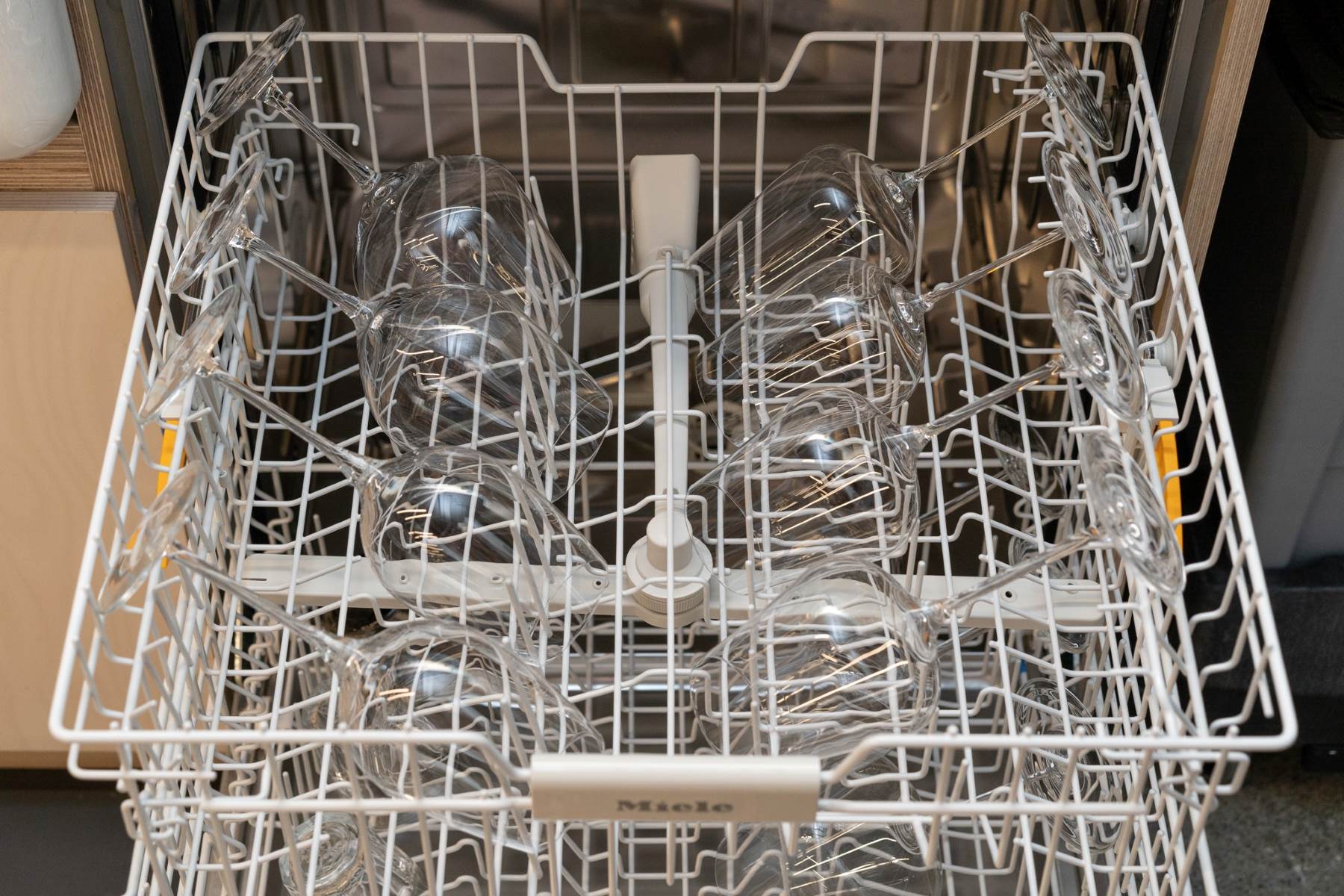
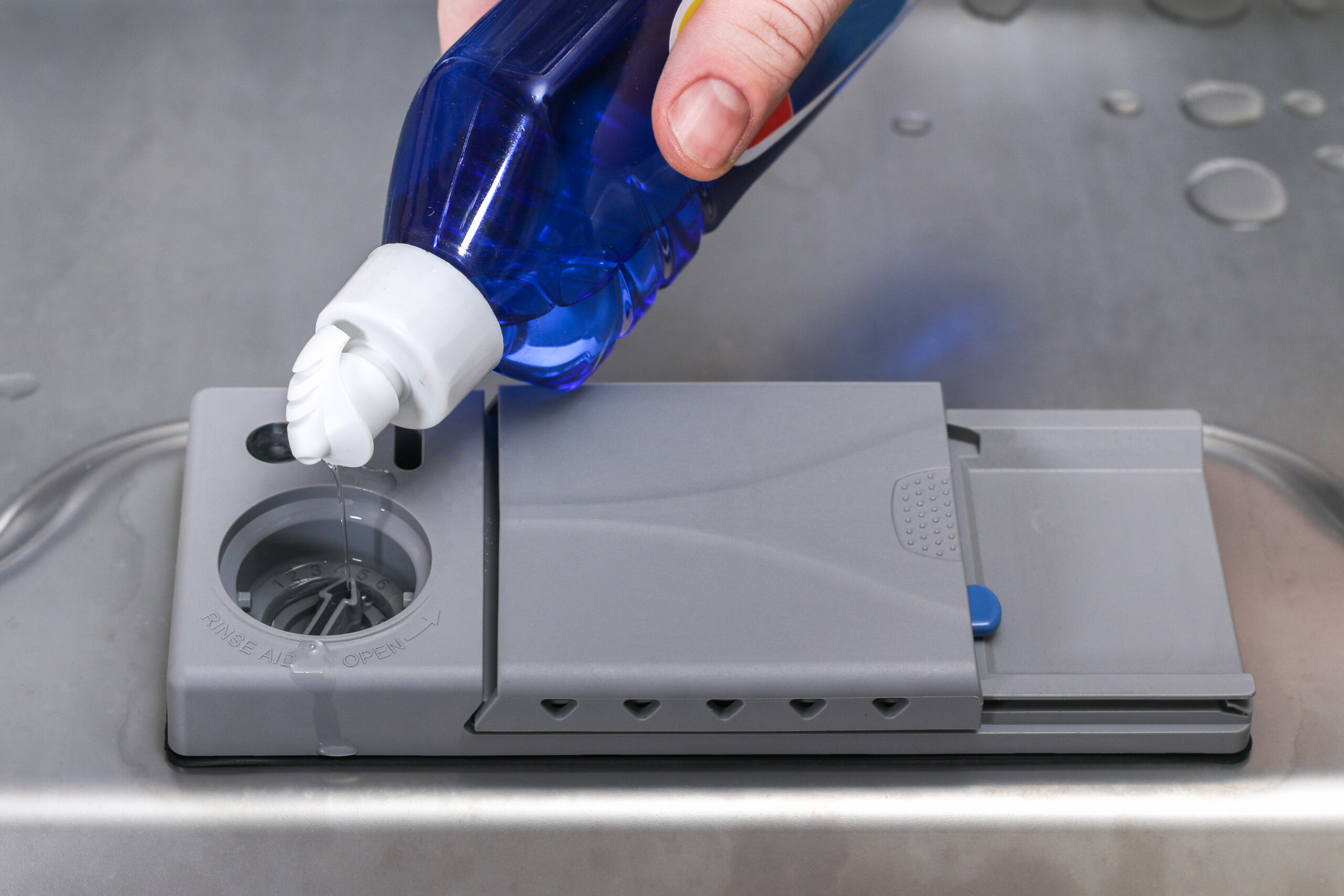
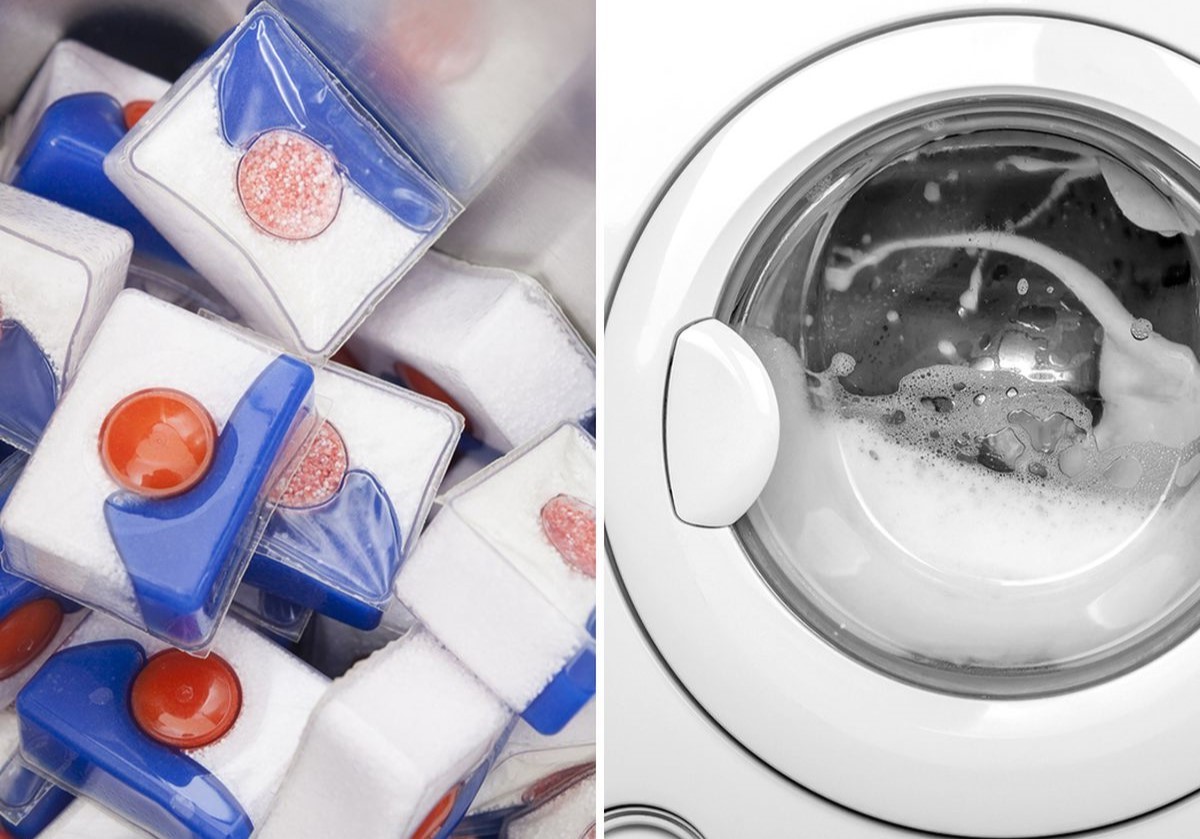
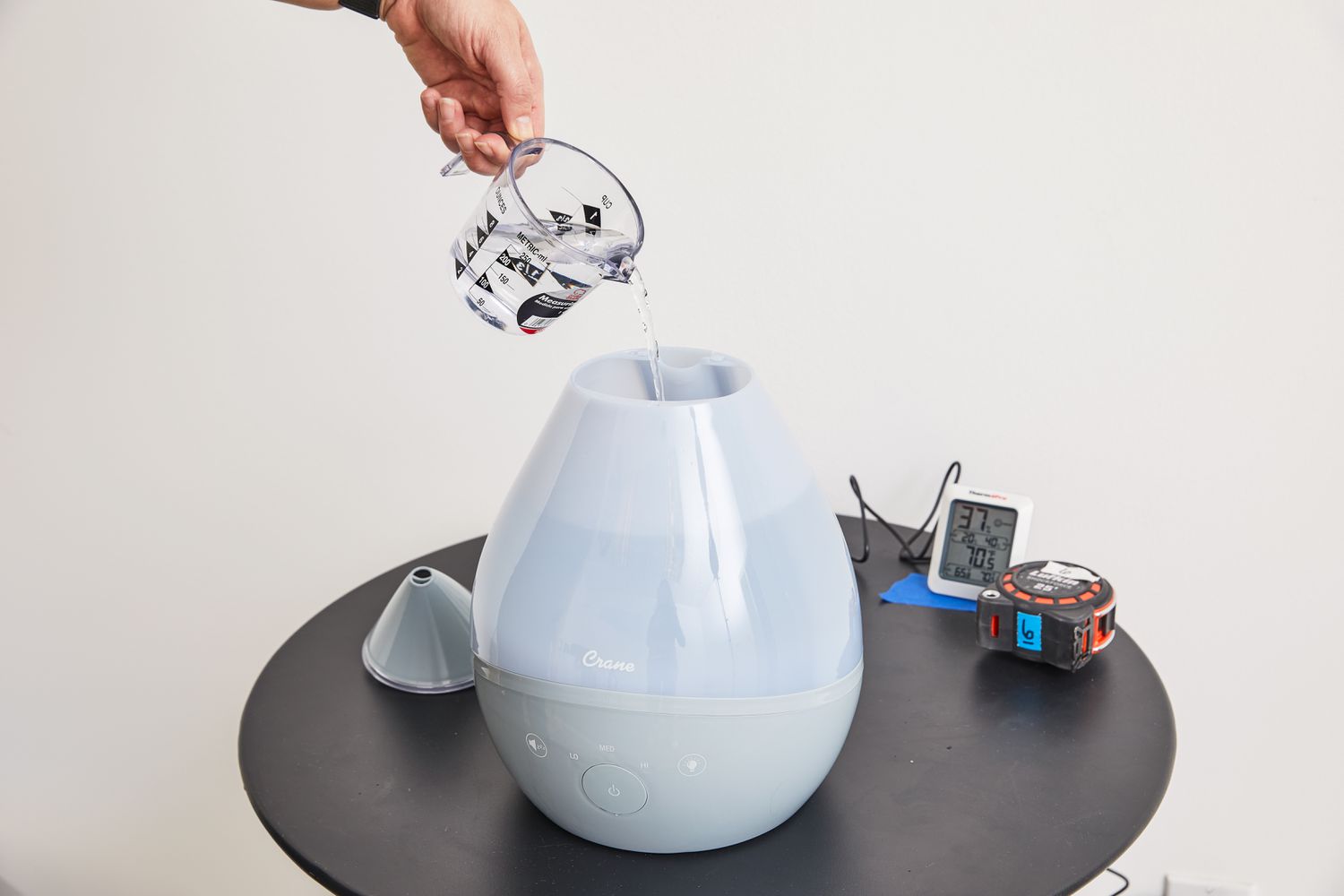
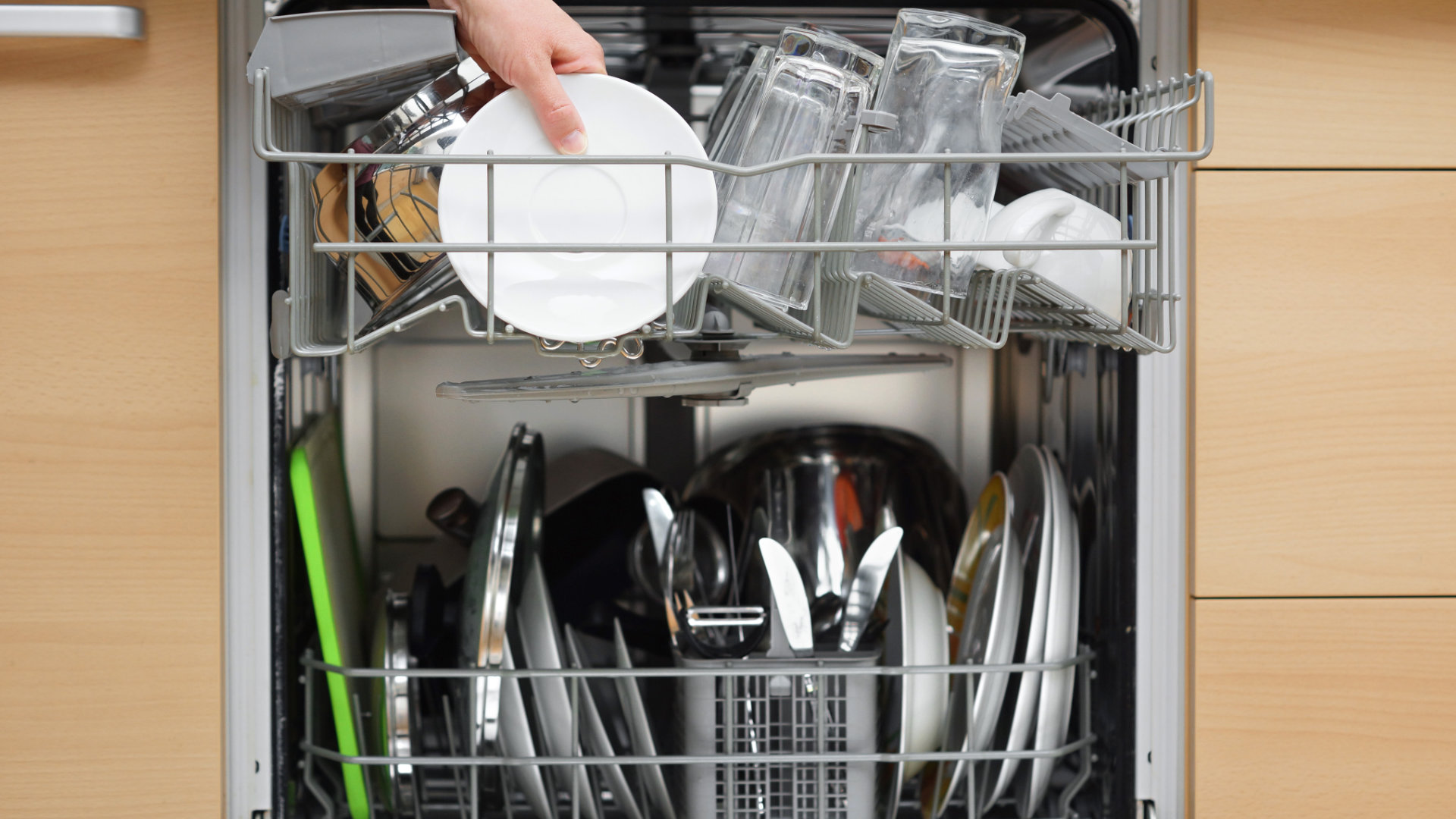


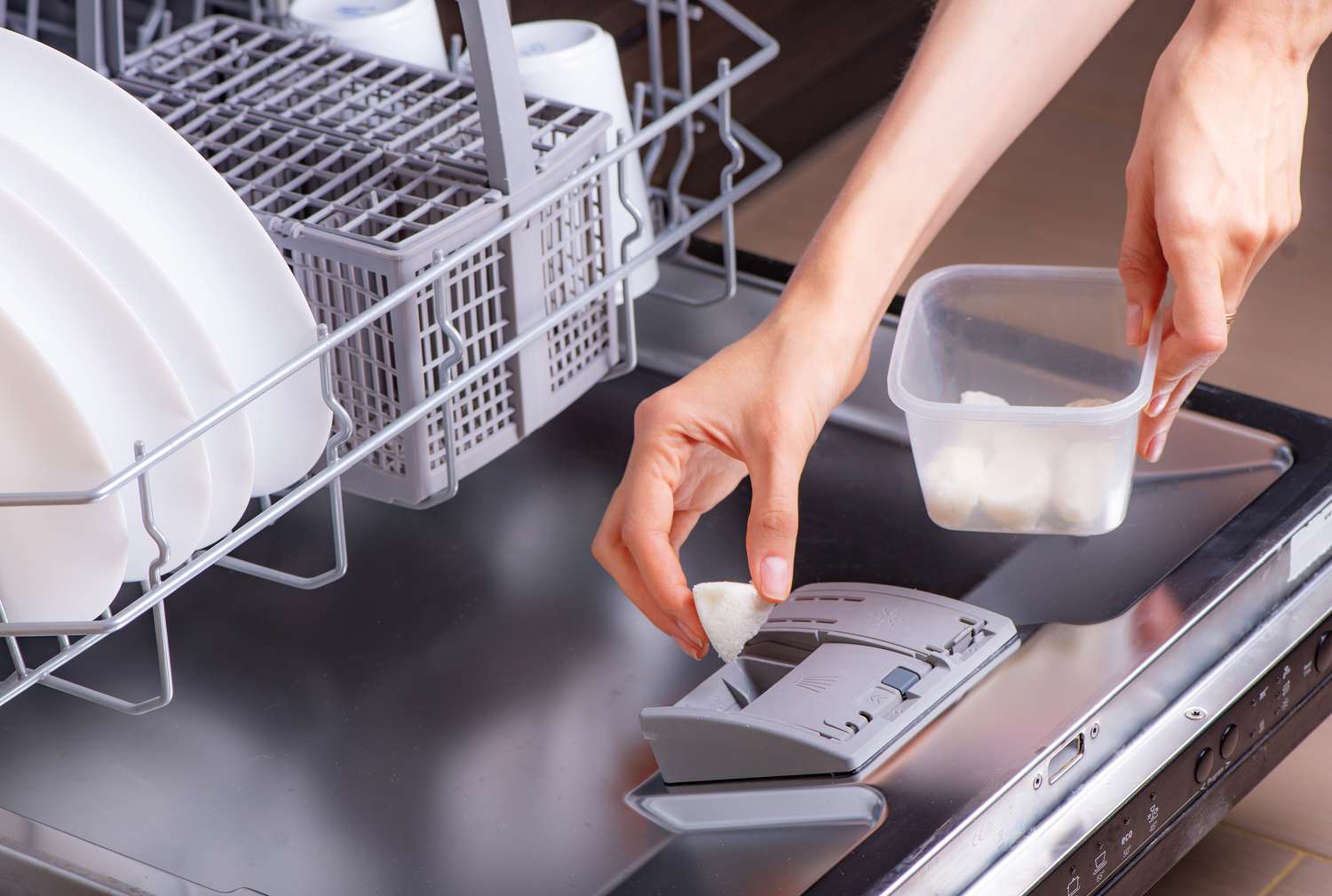





0 thoughts on “What Not To Put In A Dishwasher”